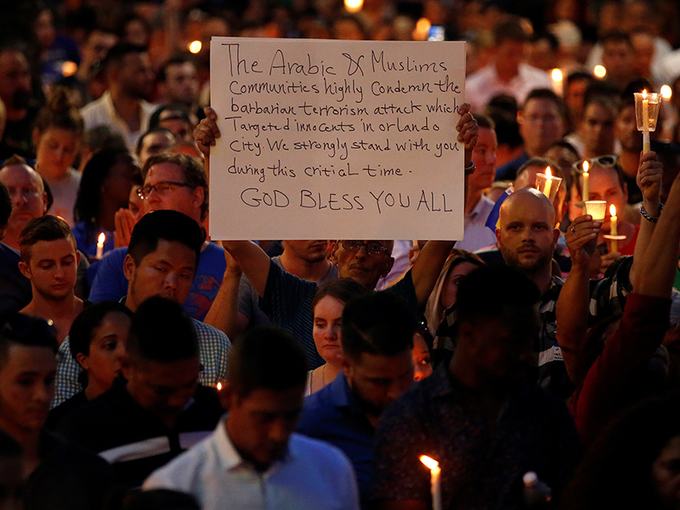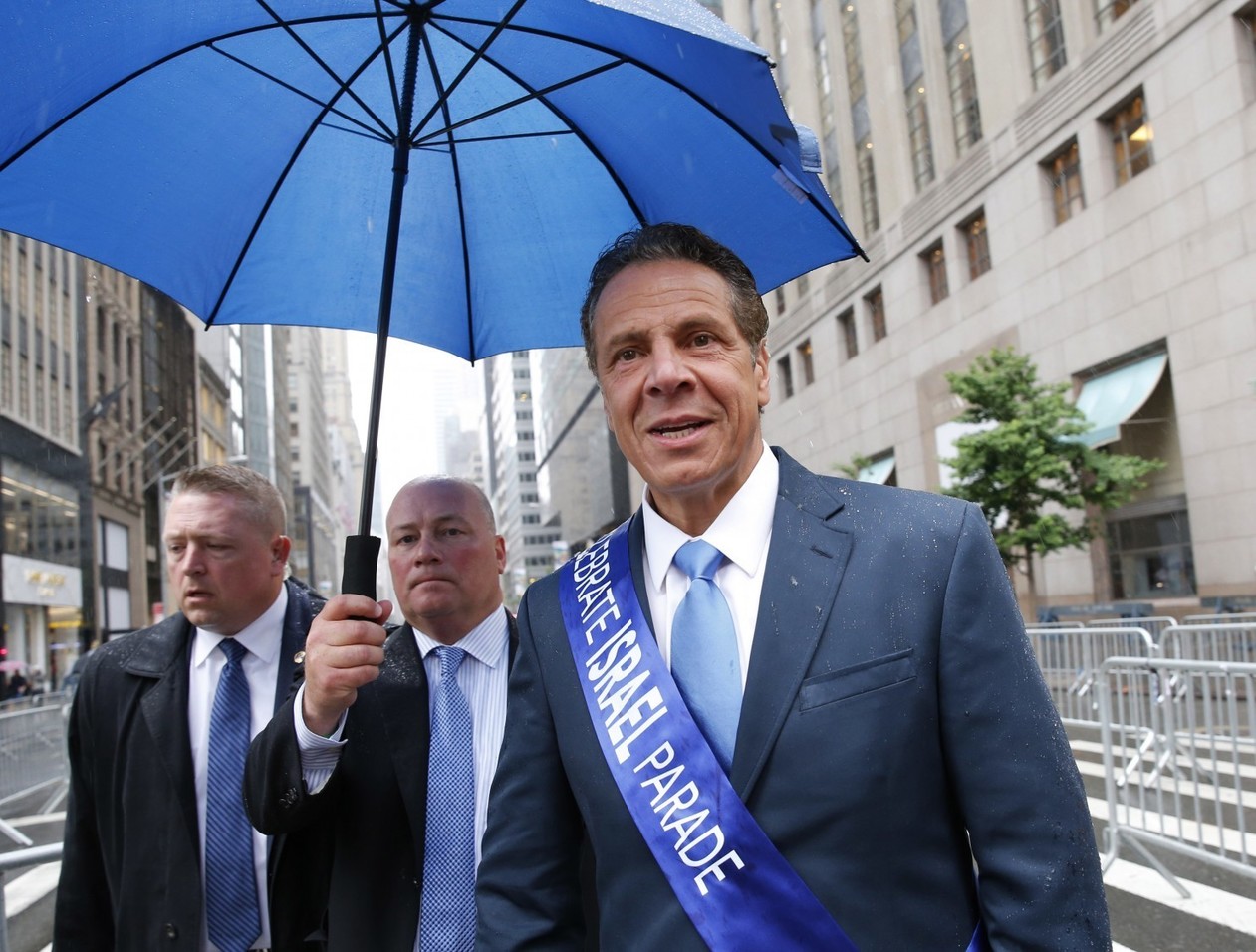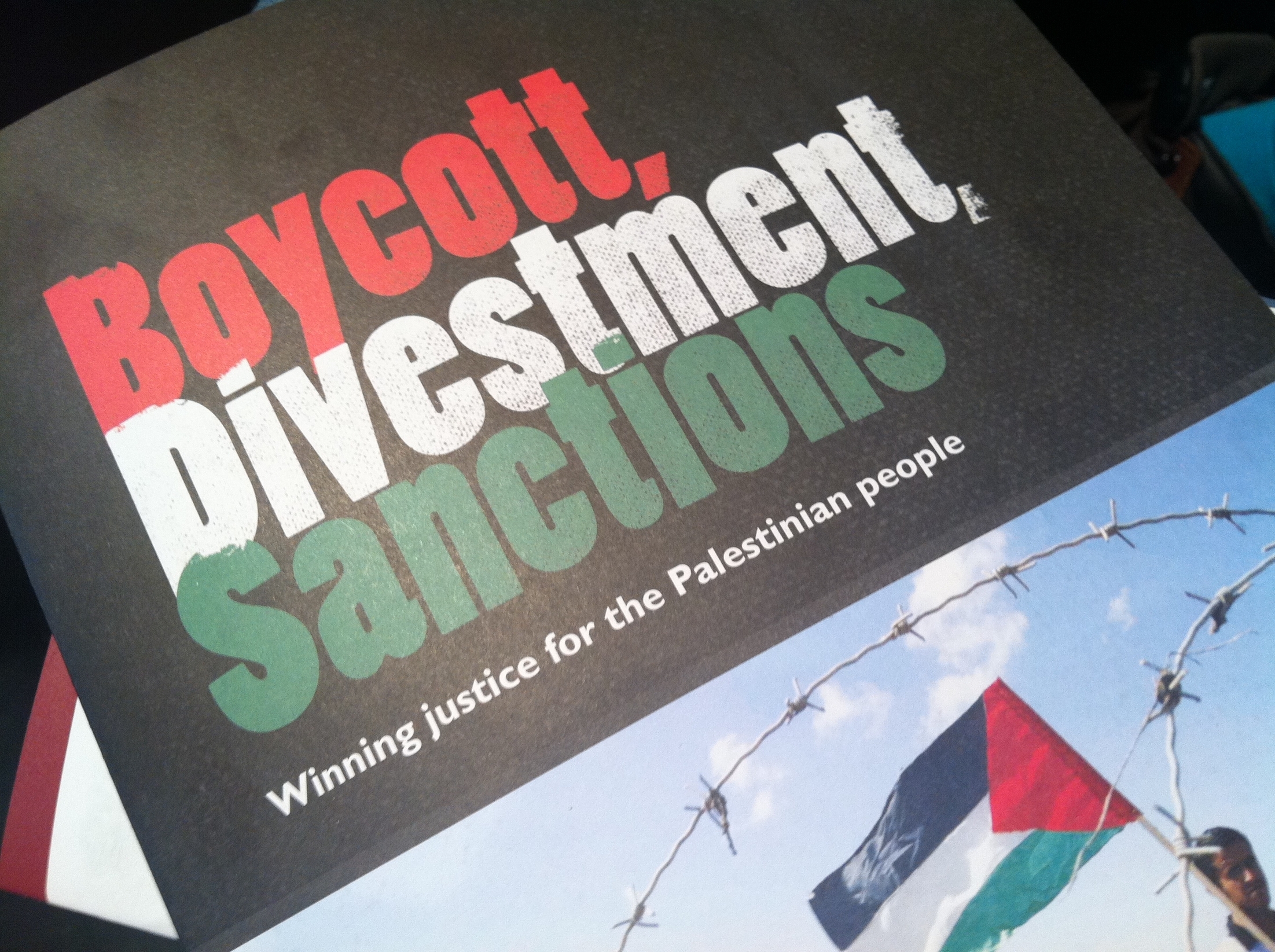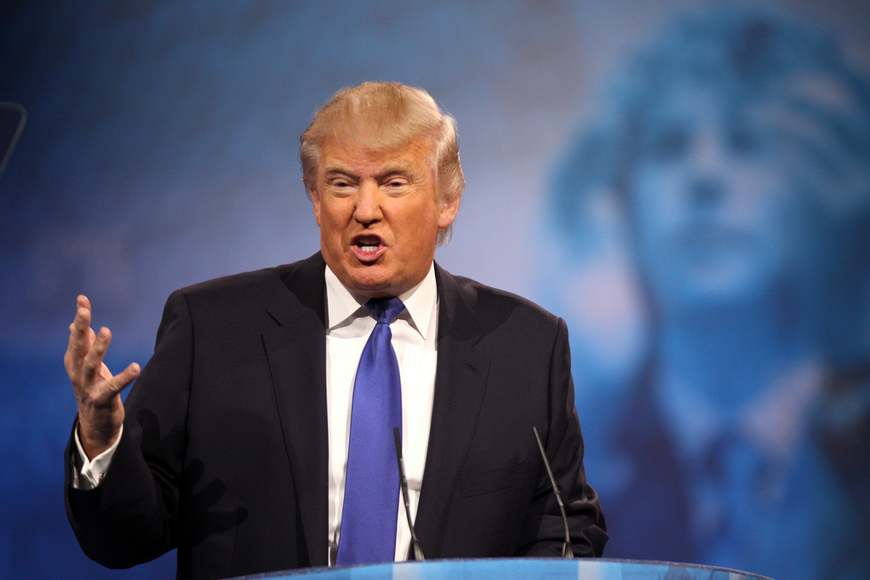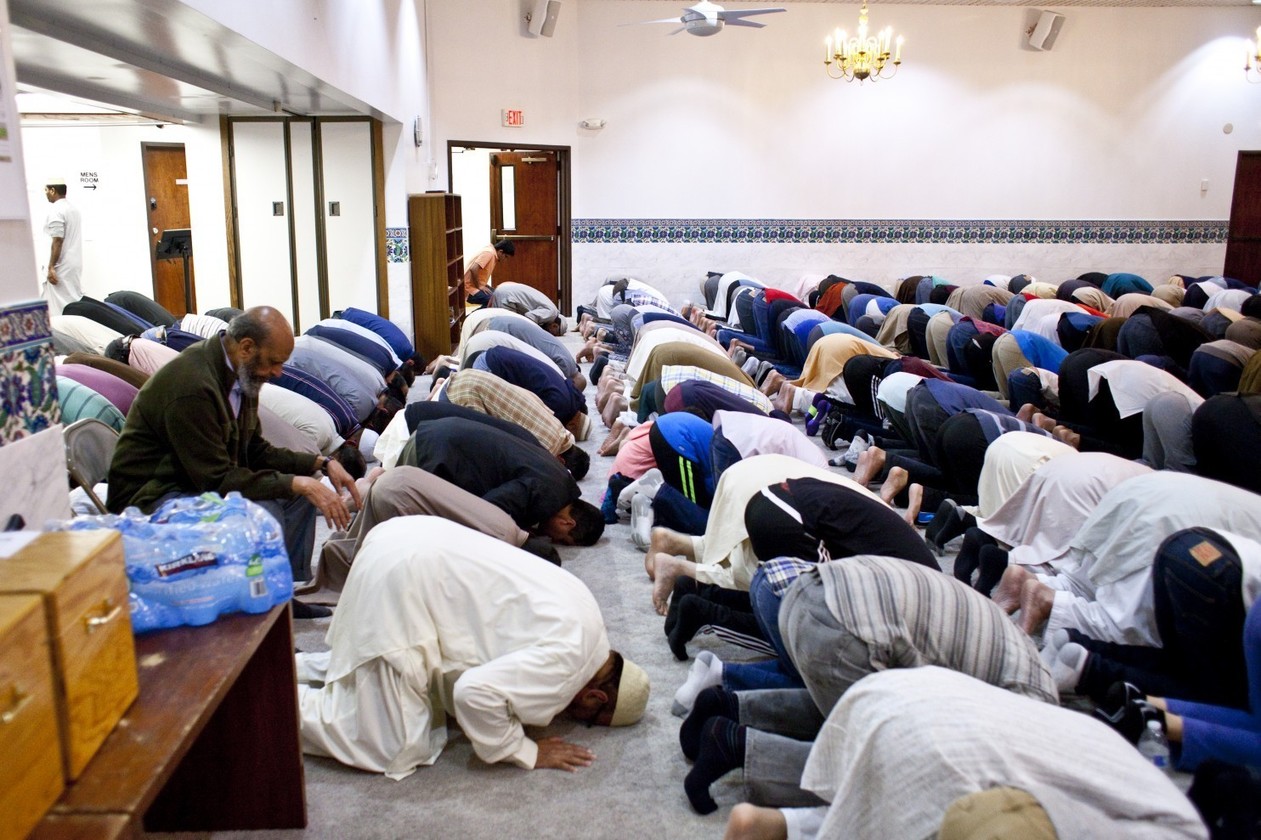
By Robert Samuels
The Washington Post
The morning after the worst mass shooting in American history, Azra Baig woke up expecting Donald Trump to resurrect his message about her religion. And she knew that she, too, had to resurrect her message about him.
“If we don’t stand up now, I don’t know when the Muslim community across this country will be politically engaged or civically minded,” said Baig, a 44-year-old registered nurse who attends the mosque at the Islamic Society of Central Jersey. “Unfortunately, it took this climate for people to be more active, but it will happen. We are going to vote.”
Baig said that she and others living in this Muslim enclave about 80 minutes from New York City had already felt a higher call during this election year. It became personal when Trump, the presumptive Republican presidential nominee, reacted to the terrorist attack last year in San Bernardino, Calif., with calls for banning Muslims from entering the country and increasing surveillance at mosques. He backed up his views with what felt like a particular insult to the Muslims who live in this state — echoing a discredited rumor that some in this community openly celebrated the 9/11 terrorist attacks.
In this and other Muslim communities across the country, including in battlegrounds such as Florida and Michigan, candidates from both parties have courted Muslim voters for years. President Obama and President George W. Bush frequently described Islam as a peaceful religion marred by extremists. Republican Gov. Chris Christie gained the respect of New Jersey Muslims after standing up for his appointment of a Muslim lawyer to the Superior Court in Passaic County and dismissing concerns expressed by some conservatives that the jurist would enact sharia law as “crap.”
And until now, many in this community said, they had focused much of their activist energy on building friendly ties with local officials. Community leaders tried to engage with police departments and politicians to give them a more complete understanding of the fundamental tenets of Islam.
Donald Trump called for a “total and complete shutdown” of Muslims entering the U.S. in December. But since then, his commitment to a “total and complete shutdown” has wavered repeatedly. Here’s how. (Peter Stevenson/The Washington Post)
Trump’s presence is changing the calculation for these Muslims, who say they feel emboldened to become more of a force in national politics. Trump’s response to the shooting early Sunday in Orlando — he delivered a speech Monday in which he accused American Muslims of harboring terrorists such as the Orlando shooter — has only intensified the sense of urgency here.
“I want every American to succeed, including Muslims, but the Muslims have to work with us,” Trump said. “They know what’s going on. They know that he was bad. They knew the people in San Bernardino were bad. But you know what? They didn’t turn them in. And you know what? We had death and destruction.”
Many in this community said they had been bracing for Trump’s response since they first heard about the tragedy. They worried about the impact of the moment, particularly coming during the holy month of Ramadan and amid a global outpouring of love and support following the death of one of the world’s most revered Muslims, Muhammad Ali.
The president of the Islamic Society, Arif Patel, felt empowered and inspired after he attended Ali’s memorial service in Louisville last week. On Sunday, he awoke to text messages from fellow Muslims fearing what conservatives might say if Ali werereplaced in the news cycle by a shooter who was Muslim. Then came the anguished messages after news that Mateen had professed Islam as his faith and then his allegiance to the Islamic State. And then, more texts came, wondering if police could do more patrols around the mosque — an added precaution to help protect against attacks.
Patel told worshipers at the mosque to “double down in terms of being good human beings.”
“There’ll be a lot of propaganda,” Patel reflected. “It is so uninformed to think we would harbor terrorists. They kill Muslims, too.”
Trying to avoid the specifics of candidates’ politics, he called on worshipers to “donate blood and participate in domestic violence walks and partner with everyone.”
At a rally in Atlanta on June 14, GOP presidential candidate Donald Trump claimed immigrants coming into the U.S. believe in “execution for things that you would say are like standard parts of life.” Trump suggested the U.S. should help build safe zones in Syria for refugees instead of allowing them in. (Reuters)
He pointed out that a national coalition of organizations on Sunday morning launched an online fundraiser with the hopes of raising $25,000 for victims and their families. They surpassed the goal in mere hours and have continued to raise money.
“Be an ambassador for your community,” Patel recalled telling the group. “We had already been doing that, but we need to do even more of that.”
Three years ago, after encouragement from Patel, Baig became the first Asian American woman to serve on the local school board. She said she gave out more than 100 forms at voter registration drives at the mosque in the lead-up to this month’s New Jersey primary — and she plans to hold more during the general election. Many people, she said, told her they would be voting for the first time.
Many in this community attended rallies for Democrats Hillary Clinton and Bernie Sanders to get a sense of which might best represent their interests.
“My biggest motivation during this election is to stop Trump from becoming president,” Dilawar Jaulikar, 42, said one recent night before Ramadan prayers. He moved from India to the United States when he was 21 and works in information technology. “Now I am paying more attention to politics than ever before. We have to watch everything he is saying.”
Nouran Shehata, a 21-year-old recent graduate of Rutgers University, made a small confession during a group discussion at the Islamic Society.
“I am voting for Trump,” she said. Then she paused and smirked, and now the group was laughing because the very idea seemed so ridiculous to them. Laughter, she said, helps to ease the tensions of the times.
“I don’t understand anyone who would vote for this man,” she said.
“He is trying to destroy us with his hate,” Jaulikar said. “I have never seen anything like him.”
As hundreds streamed in, some wore traditional hijabs and loose dresses and tunics. Others came in jeans, and there were children in pajamas. Inside the mosque, the bulletin board is decorated with newspaper columns excoriating Islamophobia, offers for trips to Mecca and requests for housing for members. A handful of Syrian refugees just started attending services. An enlarged quote reads: “The ultimate tragedy is not the oppression and cruelty by the bad people, but the silence over that by the good people.” The inspiring words are not from a Muslim, but from the Rev. Martin Luther King Jr.
About an hour north of the mosque, a man named Diab Mustafa, who was locking up a community center recently, sighed:
“It feels like we’re back at square one.”
Mustafa, 46, is a real estate broker who lives just outside Paterson, where Main Street is filled with restaurants offering Ramadan buffets for hungry Muslims eager to break their fasts after sundown.
After 9/11, Mustafa remembers, people in this primarily Arab American community felt fearful, angry and a little defensive. They worked with police to try to limit profiling. There were raids targeting potential terrorists.
The community, Mustafa said, “tried to moderate language.” Fearing that they might actually harbor terrorists, Mustafa said many kept a lookout for neighbors who might say hateful things about the country — in hopes of calming them down or reporting them to authorities.
Something different has happened in recent months, according to Andre Sayegh, a Paterson city councilman who is Catholic and represents the part of the city known as “Little Ramallah.” When Trump first mentioned the Muslim ban, Sayegh said the community did not feel an obligation to defend the purity of the faith. Instead, religious leaders called on politicians to explain their beliefs.
“We all had to go up to the Islamic Society to assure them that we denounced Trump,” Sayegh said. “That was how much politics have changed in the community.”
Back in South Brunswick, Baig prepared to join hundreds at the mosque for their nightly prayers. The solemn month of fasting that is intended to help build a closer connection to God has also become a festive time to build community. Worshipers spilled out of the mosque after the late-night service and hung out past midnight. One group of young men discussed internships. A small girl in a pink hijab bounced a basketball. Baig ate sweet desserts prepared by Mohammad Jawad, 48, a local restaurant owner.
Jawad began donating food and drinks during Ramadan as a way to honor his deceased father and thank God. Jawad said his faith lifts him above the current state of American politics.
“The politicians are too busy talking about each other,” said Jawad, who said he will vote for a Democrat, like he usually does. “The poor are getting poorer by the day. When I go to New Brunswick, the line for food stamps gets longer and longer. They are not trying to do what they are supposed to do, which is help people. Trump? He can say what he wants, but if he gets to the office, he’ll be just like the rest of them.”
As he spoke, he spotted a security guard patrolling the mosque.
“Sir, did you like the mango lassi?” Jawad asked. “Take some more.”
Source: www.washingtonpost.com




